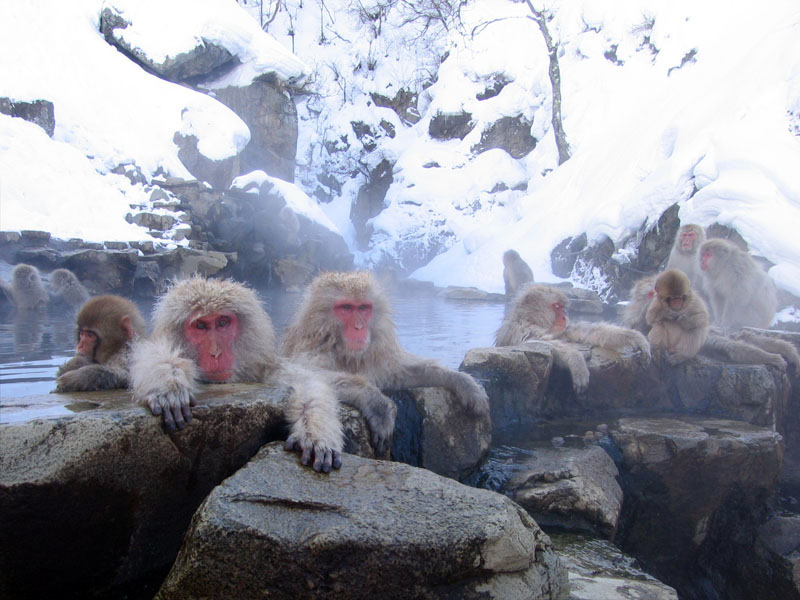In Japan, between May and July depending on the part of the island, the rain season occurs. It is similar in Korea or Taiwan.The rain season is called 梅雨 (tsuyu), which translates into "plum rain". It is called so, because of it coinciding with the plum ripening period. The rainy season is caused by the collision of cold northerly and warm southerly air masses, which results in a relatively stable bad weather front over the Japanese archipelago for several weeks. Usually, the island of Okinawa is affected by the rain about a month earlier than the rest of Japan, while the island of Hokkaido is usually not affected at all. During this time, tourist activity is significantly lower than usual, which allows to see certain places at a more leisurely pace, however the whole trip might be heavily affected by the rainfall.
 foreigner whose country is an inland place, this humidity is quite hard to handle. Taking showers during the day tends to help quite a bit.
foreigner whose country is an inland place, this humidity is quite hard to handle. Taking showers during the day tends to help quite a bit.One important thing is to let your room and closets get some air. Because of the increased humidity and rain, your room might get damp completely on its own. That's why if you manage to find a sunny day, you should open all your windows and closets, and let the warm, dry air do its magic.
Coming back to sightseeing, there are a couple of places that are profiting from the foggy and gloomy atmosphere. For example Mount Kyouya feels much more spiritual in the fog rather than blazing sun; or the hydrangeas in Hakone parks are much more plentiful during the rain! I think though, that the best escape is an open air hot spring, where you can relax and admire the clouds and foggy scenery while listening to the constant tapping of raindrops.
Worth knowing!:
- Kappas are presumably intelligent water spirits in Japanese mythology. They are monkey-like creatures with saucer-shaped heads, long noses, and a yellowish-green skin. Kappas are said to lure children to the water and pull them under, feeding on their blood. Their main weakness is that their heads are filled with water, and when this is spilled they lose their powers. In manga and anime, to call someone a "kappa" is sometimes used as insult.
- Ameonna is a person who always brings rain with them. Wether it's a trip or a picnic, the clouds always follow this person.




